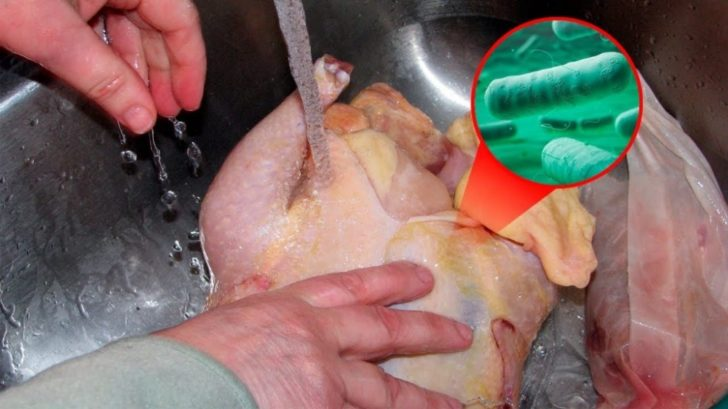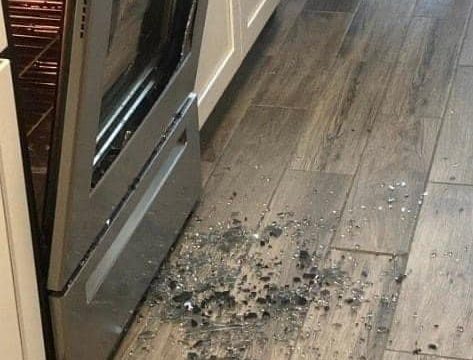For many home cooks, washing raw chicken before cooking has been a longstanding kitchen tradition. It feels logical—after all, we wash fruits and vegetables to remove dirt and contaminants, so why wouldn’t we wash chicken too? However, the Centers for Disease Control and Prevention (CDC) has issued a strong warning: Stop washing raw chicken!

The reason? Washing raw chicken doesn’t just fail to make it safer; it can actually spread harmful bacteria like Campylobacter, Salmonella, and Clostridium perfringens all over your kitchen. These bacteria are the leading causes of foodborne illnesses, and by washing chicken, you’re increasing the risk of contaminating other surfaces, foods, and utensils through water splashes.
How Washing Chicken Spreads Bacteria
When you rinse raw chicken under the faucet, any bacteria present can spread through droplets of water, landing on kitchen surfaces, countertops, and even nearby foods. The worst part is that these bacteria are invisible, so you may not realize the extent of the contamination. Even a small splash of water could spread dangerous microorganisms across your kitchen, putting your health at risk.
Campylobacter, one of the most common bacteria found in raw chicken, is a leading cause of food poisoning in the United States. Symptoms like stomach cramps, fever, vomiting, and diarrhea can develop within days of ingesting contaminated food. Salmonella, another bacteria commonly found in chicken, poses serious health risks and can even lead to life-threatening complications, especially for vulnerable populations like the elderly or those with weakened immune systems.
The Right Way to Handle Chicken: Cook, Don’t Wash
The CDC emphasizes that the best way to kill bacteria on chicken is to cook it thoroughly. Chicken should be cooked to an internal temperature of 165°F (75°C) to ensure that harmful bacteria are eliminated. Using a meat thermometer can help you verify that your chicken is fully cooked and safe to eat. Washing it beforehand does nothing to remove or kill the bacteria and only increases the risk of cross-contamination.





